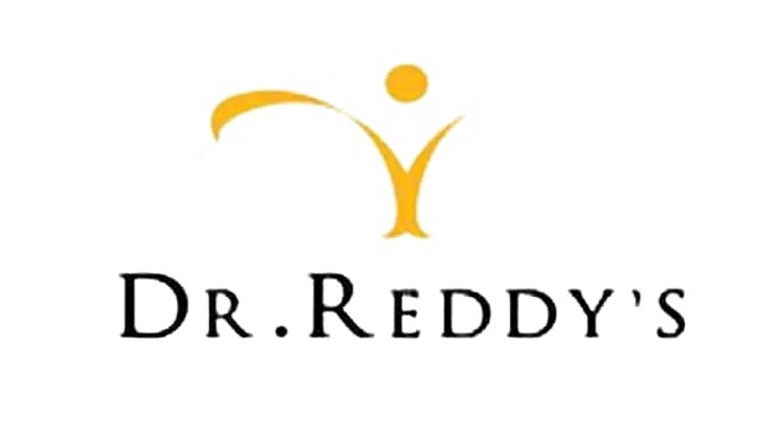
views
New Delhi: When I came back to India after graduation in the US, I knew I wanted to start a business but what that would be I didn't know. I joined the family business for a while and then set up a bulk drugs company, Benzex Labs, with my parents' money. It was 1985, also the year I got married. I ran the business for over a year. Unfortunately, it didn't do very well and Dr Reddy's Laboratories (DRL), which was in the neighbourhood and expanding very aggressively, wanted to acquire it. And acquire it did, after my father decided with Dr [K Anji] Reddy that pharmaceuticals was a business he wanted to exit. I wasn't part of that decision though.
I went back to my family business of construction, but I didn't really enjoy running it. I wasn't trained for it; it wasn't fulfilling for me. In 1990, Dr Reddy called me to run Cheminor Drugs, a group company that he had started in partnership with Murali K Divi [now chairman of Divi Laboratories]. Since I was already on the board of the company, I knew how it was working, and I took charge as I was thinking of getting back to the pharmaceutical business in any case. But I was in for some shock.
Months of simmering differences between the partners had taken a toll. Cheminor, though profitable from the outside, was hollow inside. Most of the profits came from exporting just one product to the US, Ibuprofen. That made the company financially vulnerable. To make matters worse, nearly 200 of the 300-odd employees quit when Murali left Cheminor in 1990. Suddenly, the two manufacturing plants looked vacant. It was a serious crisis.
We suffered in the first week and then went about hiring people and stabilising the business. Frankly, the whole episode was overwhelming because Dr Reddy's style of leadership was different; he just let you be. On the upside, when you are faced with such a situation, you learn very fast.
In one such instance, just after a month into the seat, we were hit by an anti-dumping case from the US. I was pretty sure we'd lose the case. We had numerous lawyers sending their profiles, telling us they'd help fight the case.
I went to Dr Reddy and asked him what I should do. He shrugged, saying it was my job and that I should "take a flight to the US and figure it out". I was 30 and didn't know anything about litigation. I had to navigate the whole affair myself, all the while keeping in mind that the costs would be high for a small company like ours.
In retrospect, I'd say I learnt from Dr Reddy the power of delegation, the power of freedom and how it impacts the commitment levels of people. And coming from a family where my father was extremely detail-oriented, I found Dr Reddy on the other side-focussed on the big picture. In a way, I had the advantage of seeing both in action in my formative years. I learnt to see the forest from Dr Reddy; and to see the trees from my father. That's the reason I can zoom in and zoom out effortlessly.
The key takeaway for me from the Cheminor crisis, which I hold on to till this day, is that you can never have a company totally dependent on one individual. So I decided to build an organisation that'd sustain changing ownership, technologies, products, strategies, etc. It stimulated the thought in me that my job is to strengthen the institution. That meant making the transition from an entrepreneur-led company to a structured organisation.
Though most startups want to tread this path, not all succeed. It takes time; even today I can't say we've achieved it all but we've made phenomenal progress on that journey.
As a first step, I brought resilience so that the company would never again be vulnerable because of any one person. We got some layers of management in place and worked on the viability of the business. The initial five years sped away in that. Then I decided to pay attention to the health of the organisation, improving transparency, people practices and governance. I am so fixated on this that one of the criticisms of my management style is that I don't focus enough on performance as much as I focus on improving things. I accept this criticism.
It was with an eye on the 'health' of the company that we decided to stick to our knitting, and not get distracted. In the early '90s, we had already pruned our businesses in computer hardware, diagnostics and equity fund. Even in the last decade, when most entrepreneurs in Hyderabad were getting into power, infrastructure, real estate, etc, we stuck to our core-pharmaceuticals. We had the capital, political connections and what have you, but we avoided that distraction.
In doing all this, we improved internal transparency, decision making, and delegated much more, which created an environment for attracting professional talent. We brought in a culture of openness even though in those days technologies were stolen and secrecy was integral to corporate culture. However, somewhere along the line, we never paid much attention to governance or leveraged the board. But in 2000, when we went to the New York Stock Exchange, we found a different class of shareholders, who demanded a much higher degree of transparency. Prior to that, when we had board meetings, we did everything that needed to be done in theory; checked all the boxes on corporate governance, but the board was never very engaged.
Post 2000, we brought in independent directors who were accomplished individuals, fearlessly independent and were not worried about being on one board or the other. These were people who could tell me to my face what was wrong. From 2001, we have been very open about having a great board and it has contributed immensely to the organisation's evolution. Many times, their decision has gone against the management's. As an example, there was a large merger and acquisition decision that our executive directors had approved [after the acquisition of German company Betapharm in 2006]. But the board, in its wisdom, did not approve it. We respected its decision and today, in hindsight, I can say we did the right thing. Similarly, a few years ago, we weren't doing very well on the safety front. The board came down heavily on us and said unless we improved operations, they'd find it tough to support us. We had a mandate to transform operations and we indeed did it. Some of these pushes have helped us significantly.
Building a great organisation takes time and effort. We told ourselves let's build a great organisation and then drive efficiency. Which is why if you compare, our costs are slightly higher than others' in the industry.
Philosophically, Dr Reddy's Laboratories is a tolerant organisation. We tolerate many things for which we are considered "soft". Ranbaxy, for instance, is a high performance company and those who join us from there tell us our culture is "soft". I've always believed that by giving people more space and the freedom to take decisions, which may or may not be right all the time, you build greater ownership. We've not built a rigid organisation, we tolerate mistakes but we don't tolerate bad or unethical behaviour. Today, DRL's value proposition to an employee is: 'You can come here, learn, and leave your footprint.' We encourage people to take risk and make a difference.
In fact, risk taking is in the company DNA. Among the three of us, Dr Reddy was then the biggest risk-taker, Satish [Reddy] is the pragmatic one and I am somewhere in between. I am also accused of being more interested in creating the future than delivering the present. I guess that's because results take longer than I expect. People tell me we have over-invested in biosimilars and drug discovery but I believe it's the right decision for the company. Call it Dr Reddy's legacy, I like to think big.
(As told to Seema Singh)


















Comments
0 comment